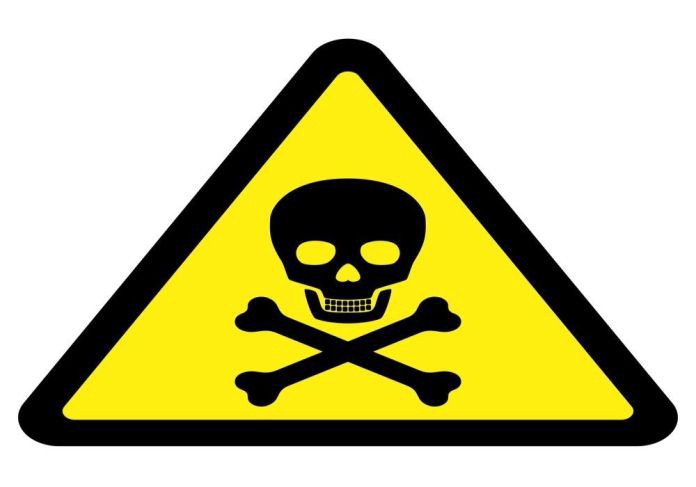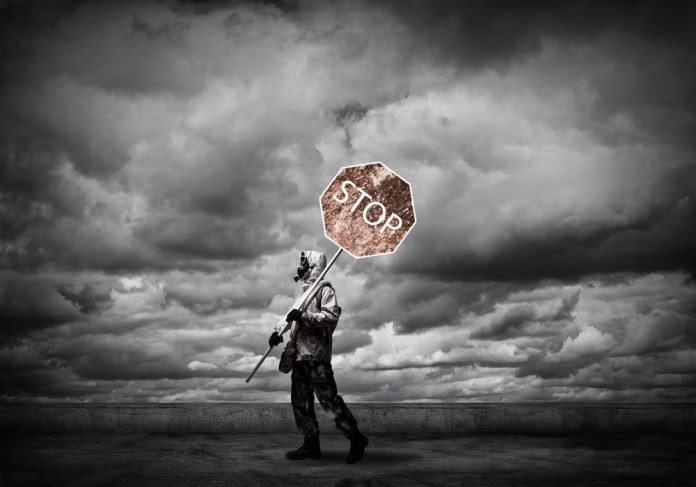 Photo by Jules D. on unsplash
Photo by Jules D. on unsplash
Toxic cultures are diseases that feed from anything they touch, making productive work impossible. Such poisonous conditions harm any job environment but are especially devastating when they invade healthcare where patients? lives are in jeopardy.
A veteran provider, Dr. Gia Baquiran Sison has seen the good and bad in the medical field. She knows the harm a brutal culture can create. The occupational health expert is a consultant to the World Health Organization Western Pacific Region and Makati Medical Center in the Philippines.
?The world of medicine may sound ?glamorous,? but on its opposite side there is much toxicity in this industry, most especially in its senior-to-junior power-play scenarios,? Sison said. ?It may seem to be a taboo topic, but the reality is it does exist.
?To some of us doctors and medical students, the results may be damaging,? she said. ?Toxic culture is one of the top causes of burnout. We must overcome it.?
Emotional suffering arises from the negative impact of catching up and living up to the image of a good physician, according to healthcare professional, lecturer and clinical researcher Yinka Vidal, who has 40 years? experience in the field.
Big Money and Cutting Edge Technology: How Investment in AI/ML Will Revolutionize The Healthcare?
Among remarkable developments in Artificial Intelligence ( AI) and Machine Learning (ML) over the last couple of years?
www.datadriveninvestor.com
?In the process of sustaining the persona of the so-called good physician, you have to hide the reality of your own life challenges,? he said. ?Physicians and healthcare professionals are the last group to take good care of their health through prevention.
?There is a race to be better than the other physician and attain a social trophy of being a glamorous doctor,? Vidal said, citing the human toll. ?In the past two years, I have lost two great friends, both MDs, who worked so hard all their lives but succumbed to the same illnesses they treated.?
The power plays Sison described have broad, sometimes unexpected effects, which Vidal witnessed firsthand.
?The politics in any profession is very dangerous,? Vidal said. ?I have seen bullies fall or be injured by their own swords many times.?
Put patients first
Pharmacist Jarvin Tan directs research at Youth for the Mental Health Coalition in the Philippines National Capital Region. He wants to kickstart involvement of Filipino pharmacists in mental healthcare and advocacy. That includes confronting toxic cultures.

?I feel the need to highlight what a colleague and friend described as a ?hegemony? of healthcare professionals ? not to single out one ? versus the patients we?re supposed to help,? he said.
Tan compared conditions in his country to that faced in the United KIngdom.
?The history of mental health in the UK is mired by professionals using their positions against service users,? he said. ?The many stories only served to corroborate my theoretical reflections on how their law could be abused.
?Seeing our own Mental Health Act and resolutions passed and the existing accounts of service users, as an advocate I worry that we may head down that similar, dark path the UK did,? Tan said.
He emphasized the importance of modeling good behavior.
?I hope to set a better example to students, admitting my mistakes ? but self-pressured to be better and make less ? walking a growth mindset and fostering collaboration,? Tan said.
He noted that not all stress is bad and need not turn toxic.
?Perhaps ?toxic? can be an adjective that describes excess, a la Paracelsus, to make distinct what can actually help,? Tan said. ?Something more encouraging, like ?challenge,? ?persistence,? ?grit? or other terms can be used to describe positive stress.
?It can feel similar to the challenges of parent-child communication, as I discussed with my family therapist,? he said. ?A child has legitimate concerns but may come off as invalidating parents? experience. Parents want what?s best but tend to be rigid and have less room for growth.?
Strict adherence to hierarchy is stifling or worse.
?Toxicity means having to live a life where seniority is emphasized at the expense of professional respect and dignity,? said Dr. Jaifred Christian ?Jim? Lopez. ?I don?t speak for all training programs, but this persists in many. I don?t thrive in these settings. I chose a non-clinical path.?

Lopez teaches at the College of Public Health, University of the Philippines Manila. He also does research in health policy and management.
?To be fair, being in a position to save others? lives can be too empowering to a fault,? he said. ?Many of us let it climb up to the head.?
Unintended harm
Biochemist, internist and pulmonologist Dr. Earl Louis Sempio explained that bad things can result from good intent.
?Anything intrinsically good or bad in excess can potentially impair proper function even in small amounts over a prolonged time,? he said. ?Toxicity pushes beyond one?s limits. This can potentially be damaging. But if survived, it can also make one better. Not all toxicity is bad.?
Rheumatologist and teacher Dr. Sids Manahan also chose to look at the bright side.
?Toxic work teaches us to do things better, more efficiently or makes us develop systems,? he said. ?On the other hand, toxic people challenge the balance of the system by insisting we do it their way.
?Exercise also causes damage, but it directs our body to what parts need improvement,? Manahan said. ?Once recovered, muscles are stronger, better. But if too much, we may end up worse or scarred for life.?
He added that he has seen toxic ?batchmates? or even juniors.
?Toxicity is when people believe their way is better than others,? Manahan said. ?Instead of being helpful, they have a tendency to push others down.?
A psychiatrist such as Dr. Stephanie Miaco has seen resulting stress reach the breaking point.
?Toxic at work is being too stretched out like a rubber band, ready to snap,? she said. ?At least, that?s how it feels like most of the time.?
Toxic culture springs from ?me first? to the extreme. Terms and relationships are dictated with little or no flexibility or empathy.

?Part of it comes from the chain of command, which is important,? Lopez said. ?It just happens that ego and pride get into the mix.?
Vidal described a dangerous, emotional brew of power, position, title and prestige stirred by playing God. To that, Manahan added a sense of privilege and entitlement.
?There is the belief that difficulties or untoward events are caused by the weakest link in the team,? Manahan said. ?It?s the words and actions people take when they feel their status or comfort is threatened.?
This sort of culture breeds pressure that leads to errors, according to Tan: ?Those insisting on eminence- rather than evidence-based medicine are toxic, too.?
Know your limits
To help cope with toxicity, don?t let others suffer in silence. Be available as a helping hand, letting them know they are not alone.
?Humility is the greatest virtue in anything we do to serve the public,? Vidal said. ?Nobody is perfect. We are all caregivers not magicians. Man has limitations.
?Ditch the invisible glamorous crown of a physician and embrace the reality of being a simple human being,? he said. ?That makes you feel much better. Showing love to a person going through emotional trauma is one of the greatest antidotes for a person suffering from burnout.?
Lopez suggested assorted ways to fend of toxicity:
- Find your support group.
- Kill toxicity with kindness.
- Promise not to be like the people you hate.
- Convince others to do likewise.
?Be kind to everyone,? he said. ?Kindness is what makes us human.?
Manahan adds humility, lots of patience and understanding.
?Have a genuine desire to help others improve without going through the toxicity you personally went through,? he said. ?Be mindful of how we treat others. We all are human. None of us is perfect.
?Even when we?re in over our heads, let?s pause and compose our thoughts,? Manahan said. ?Then we can convey disappointment yet still able to continue working as a team. Treat each other with kindness.?
Miaco advocated that everyone should have ?a mentality to teach the kind of person you were yourself, years and years ago.?
About The Author
Jim Katzaman is a manager at Largo Financial Services and worked in public affairs for the Air Force and federal government. You can connect with him on Twitter, Facebook and LinkedIn.
Originally published at https://www.datadriveninvestor.com on August 9, 2019.

